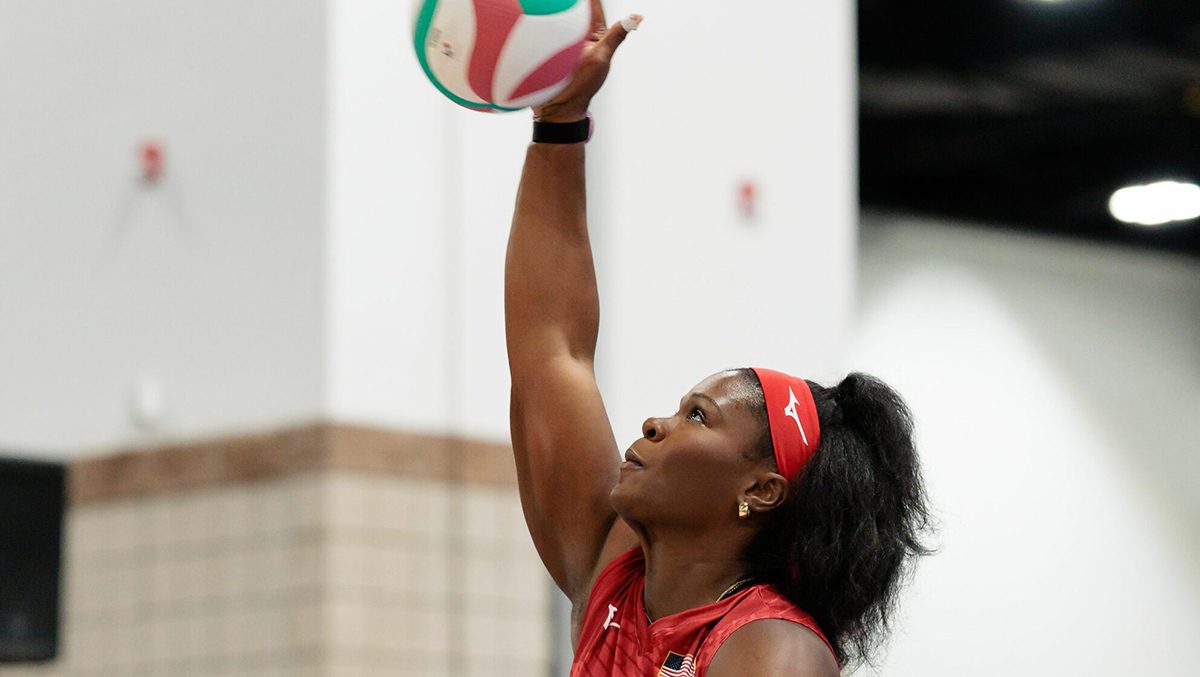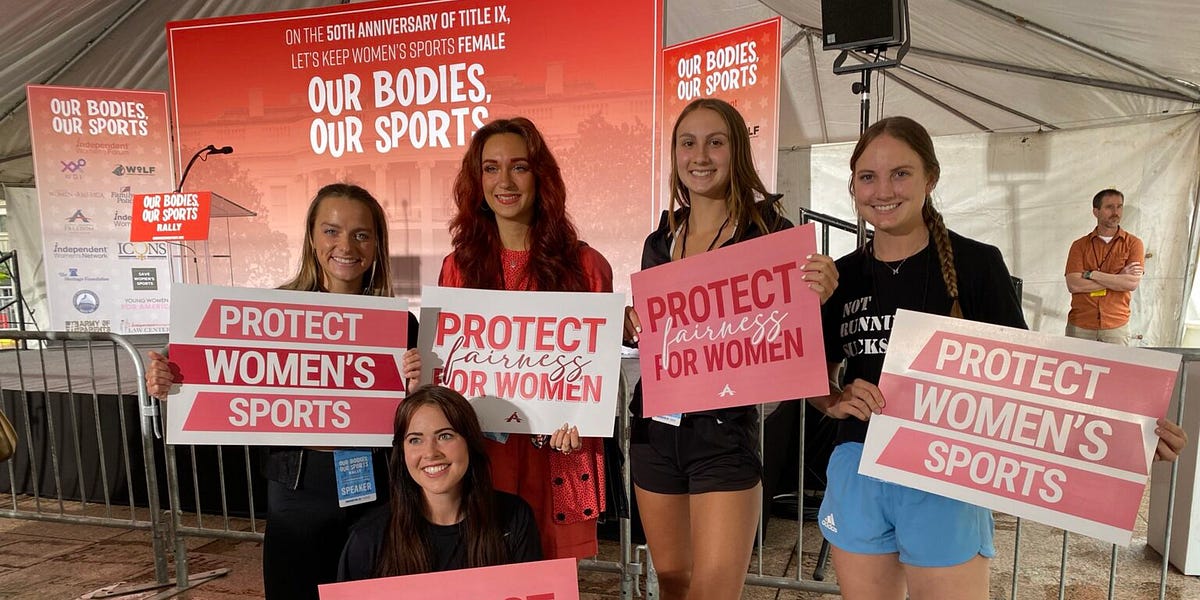Sports
Final track poll keeps Central squads in top 25
Story Links NEW ORLEANS, LOUISIANA — The Central College men’s and women’s track and field programs combined to have 23 individual entries into the national top-50 lists, keeping both teams in the top-25 in the latest United States Track & Field and Cross Country Association National Team Rating Index, released Tuesday. […]

NEW ORLEANS, LOUISIANA — The Central College men’s and women’s track and field programs combined to have 23 individual entries into the national top-50 lists, keeping both teams in the top-25 in the latest United States Track & Field and Cross Country Association National Team Rating Index, released Tuesday.
The Dutch men came in at No. 22 and the women are No. 24.
Points in the National Team Rating Index are based off placement in the National Descending Order Lists. The higher an athlete sits on the top-50 list, the more points he or she adds to his or her team’s total. These points do not reflect placement or scoring at the NCAA Championships but are to show the individuals and teams that have the best chances at scoring well at said meet.
Central’s women had eight individual entries and two relay squads in the national top 50 list, headlined by Olivia Bohlen (junior, Belle Plaine) at No. 3 in the heptathlon (5,045 points) and Peyton Steffen (junior, Marion) at No. 4 in the 3,000-meter steeplechase (10 minutes, 33.21 seconds).
The Dutch men had 15 individual entries, most prominently Kale Hobart (sophomore, Mason City) at No. 2 in the heptathlon (6,922 points) and Gunner Meyer (junior, Fairbank, Wapsie Valley HS) at No. 6 in the 110-meter hurdles (14.10 seconds).
The University of Wisconsin – La Crosse is No. 1 on the men’s list and the Massachusetts Institute of Technology is the top women’s team heading into this weekend’s NCAA Division III Outdoor Track & Field Championships in Geneva, Ohio.
Sports
U.S. Women’s Sitting Team Captures Gold at 2025 Dutch Tournament
COLORADO SPRINGS, Colo. (July 6, 2025) — The U.S. Women’s Sitting National Team defeated Italy in an exciting final match to win the gold medal at the 2025 Dutch Tournament on Sunday in Assen, Netherlands. The U.S. defeated Italy, 3-1 (25-19, 25-13, 22-25, 25-23) in the gold medal match, while earning a 3-2 (20-25, 22-25, […]

COLORADO SPRINGS, Colo. (July 6, 2025) — The U.S. Women’s Sitting National Team defeated Italy in an exciting final match to win the gold medal at the 2025 Dutch Tournament on Sunday in Assen, Netherlands. The U.S. defeated Italy, 3-1 (25-19, 25-13, 22-25, 25-23) in the gold medal match, while earning a 3-2 (20-25, 22-25, 25-20, 27-25, 15-7) comeback victory over the Netherlands earlier in the day.
MATCH STATISTICS VS. NETHERLANDS
vs. ITALY
The U.S. ran out to a 13-6 lead in the opening set and maintained a seven-point lead at 20-13. Italy scored six of the next seven points to pull within two points, but the U.S. scored the final four points to win the set.
Behind strong serving from setter Kaleo Kanahele, the U.S. took a 5-1 lead in the second set to force a quick Italy timeout. A Tia Edwards kill pushed the lead to double digits, 16-6 with a MaKenzie Franklin block giving the U.S. an 11-point lead.
Italy scored the next five points, but an Edwards ace highlighted a 4-0 U.S. run. Raelene Elam finished the set with a kill, matching the biggest margin of the set at 12 points.
After dropping the first four points of the third set, the U.S. used an 11-4 stretch to take a three-point lead, 11-8. Italy went on a 12-2 run to take its biggest lead of the match, seven points at 20-13.
In a set of runs, the U.S. went on an 9-1 run to take a 22-21 lead with Elam scoring six points on her serve. Italy scored the final four points to extend the match to a fourth set.
A great dig by libero Kari Ortiz and a save by Whitney Dosty led to a point that put the U.S. ahead 6-1 in the fourth set. A kill by Dosty down the line extended the lead to seven points, 12-5. Kills by Kanahele and Franklin after Italy points kept the lead at seven, 14-7. The lead grew to eight, 16-8, on an Italy service error.
Nieves put a second ball away for a 17-10 lead. After yielding two points, the U.S. regained its seven-point advantage on another Dosty kill and a Nieves ace. An Italy service error gave the U.S. a 20-13 lead.
Italy scored four of the next five points before Edwards put a ball down the line for a 22-17 lead. Italy scored three points in a row to cap a 7-2 run and come within two points, 22-20. Nieves scored from a tough angle and a ball handling error set up match point.
Italy held off three match points to pull within one, 24-23, but a Franklin block sealed the gold medal for the U.S.
vs. NETHERLANDS
The U.S. led the Netherlands in all statistical categories, 43-34 in kills, 25-19 in aces and 15-14 in blocks.
Franklin led the U.S. with 12 kills and 17 points, adding two blocks and three aces. Outside hitter Jessie West finished with 15 points on nine kills, five aces and a pair of blocks. Outside Emma Schieck also reached double digits with 10 points five kills, three blocks and two aces.
Edwards served a match-high six aces to go with two kills and a block to score nine points, while outside Courtney Baker also totaled nine points on seven kills, a block and an ace.
Setter Gia Cruz totaled six points on three blocks and three aces, and Kendra Hall recorded four kills and two blocks for six points. Nicky Nieves (three kills, one block, one ace) scored five points, while setter Annie Flood added four points on two aces and two blocks.
Roster
No Name (Position, Height, Hometown)
2 Bethany Zummo (L, 5-3, Dublin, Calif.)
8 Whitney Dosty (OH/OPP, 6-3, Tucson, Ariz.)
9 Tia Edwards (OH/MB, 5-7, Skiatook, Okla.)
10 Kari Ortiz (L, 5-6, Washington, D.C.)
12 Emma Schieck (OH, 5-7, Statesville, N.C.)
13 Gia Cruz (S, 5-5, San Antonio, Texas)
14 Kaleo Kanahele Maclay (S, 5-6, Oklahoma City, Okla.)
15 Kendra Hall (5-7, Westfield, Ind.)
16 Nicky Nieves (MB/OH, 5-10, Kissimmee, Fla.)
17 Jessie West (OH, 5-8, Edmond, Okla.)
18 Courtney Baker (OH, 5-9, Crofton, Ky.)
21 Annie Flood (S, 5-7, Salem, Ore.)
22 MaKenzie Franklin (OH, 6-0, Red Wing, Minn., North Country)
24 Raelene Elam (OH, 6-1, St. George, Utah, Northern California)
Head Coach: Bill Hamiter
Assistant Coach: Grace Campbell
Performance Analyst: Jeff Hicks
Athletic Trainer: Samantha Carter
Mental Performance Coach: Brooke Lamphere
Strength and Conditioning/Physical Therapist: Bobby Moore
Dietitian: Jacque Scaramella
Schedule
July 4
USA def. Italy, 3-1 (23-25, 25-22, 25-23, 25-22)
USA def. France, 3-0 (25-17, 25-5, 25-14)
July 5
USA def. Netherlands, 3-0 (25-14, 25-9, 25-20)
USA def. Canada, 3-0 (25-21, 25-22, 25-9)
July 6
USA def. Netherlands, 3-2 (20-25, 22-25, 25-20, 27-25, 15-7)
Gold Medal Match: USA def. Italy, 3-1 (25-19, 25-13, 22-25, 25-23)
Sports
Olentangy Orange’s Levi Davis voted central Ohio’s top boys athlete
Olentangy Orange football, basketball and track and field standout Levi Davis was selected by Dispatch.com readers as the central Ohio boys athlete of the year in the 2024-25 school year. Davis shined in all three seasons, but especially so during the winter. Davis passed for 2,023 yards and 20 touchdowns and ran for 853 yards […]
Olentangy Orange football, basketball and track and field standout Levi Davis was selected by Dispatch.com readers as the central Ohio boys athlete of the year in the 2024-25 school year.
Davis shined in all three seasons, but especially so during the winter. Davis passed for 2,023 yards and 20 touchdowns and ran for 853 yards and 12 scores as a quarterback, was point guard for the Pioneers’ first Division I state championship basketball team in the winter and won long jump district and regional championships this spring. Davis, who also was district champion and regional runner-up in the high jump, has committed to play football at Ohio University.
He received 37.7 of the vote, followed by Olentangy Liberty’s Andrew Leonard, who received 15%, Watterson’s Mitchell Younger (14%), Fairfield Union’s Andrew Walton (8.9%), Olentangy’s C.J. Sanna (8.9%), Olentangy Liberty’s Jake Struck (8.4%), Jonathan Alder’s Ashton Martin (4%) and St. Charles’ Austin Carpenter (3.3%).
Leonard, the runner-up, began his senior year by passing for 3,191 yards and 35 touchdowns during the football team’s run to their first Division I state championship. He then had 29 goals and 37 assists during hockey season, when Liberty made a regional final, and was an honorable mention all-state pitcher and shortstop during the baseball team’s run to a regional semifinal.
Younger finished his high school career by winning his third Division II state wrestling championship at 144 pounds, going 36-0 less than a year after battling health issues that put his season at risk. Younger, who has signed with North Carolina, also won state as a freshman and sophomore and was fourth at 150 as a junior. He finished high school with a record of 126-8.
Walton repeated as Division II state cross country champion in the fall, on the heels of winning both the Southeast District and regional, and this spring was state runner-up in the 1,600 and fifth in the 3,200 at state. He won the mile in a regional-record 4:12.9 — a time he bested by more than a second at state — and was third in the meet in the 3,200.
Sanna starred both on the football field and as a thrower in track and field, capping a year in which he verbally committed to Ohio State as a linebacker by winning the Division I state discus championship in his final state track meet. Sanna was district and regional champion in the district runner-up in the shot put. In football, Sanna made a team-high 97 tackles and shared the team lead in sacks with seven.
Struck, named The Dispatch’s Boys Athlete of the Year at the Central Ohio Sports Awards, Struck was a three-time state champion with one title each in football, hockey and lacrosse. All of those championships were the first for their teams at Liberty. Struck accounted for more than 1,800 yards and 31 total touchdowns in football and is career goals, assists and points leader for both the hockey and lacrosse teams.
Martin, a senior pitcher and the Division IV district and state Player of the Year, Martin powered the Pioneers’ run to a regional final. The Wright State signee batted .500 with 11 doubles, five triples, one home run, 32 RBIs, 30 runs scored and 20 stolen bases. On the mound, he was 6-0 with a 0.76 ERA, 60 strikeouts and five walks in 37 innings. Martin had five complete games and four shutouts.
Carpenter powered the Cardinals to their first state swim championship since 2008, winning the 100-yard freestyle (43.21) before bringing the 400 free relay back from a 1.34-second deficit on the final leg of the final event of the Division I state meet. Carpenter, who has committed to Texas, also was on the winning 200 medley relay (1:28.04) and was state runner-up in the 100 breaststroke (53.81).
The Athlete of the Week will resume in August.
Have any questions? Email sports editor Brian White at bwhite1@dispatch.com
Sports
Why Duquesne has to be 'very lean and very efficient' in post
MENU ACCOUNT SECTIONS OTHER CLASSIFIEDS CONTACT US / FAQ 0

Sports
Qatar’s Cherif and Ahmed win first Gstaad gold
Qatari Olympic medalists Cherif Younousse and Ahmed Tijan secured their second title in three Volleyball World Beach Pro Tour events this season on Sunday, triumphing at the prestigious Elite tournament held in Gstaad. The Asians topped the podium at the Swiss Alps for the first time in their careers and had by their sides second-placed […]

The Asians topped the podium at the Swiss Alps for the first time in their careers and had by their sides second-placed Swedish Jacob Hölting Nilsson and Elmer Andersson and third-placed Dutch Stefan Boermans and Yorick de Groot.
In order to take gold in Gstaad, Cherif and Ahmed prevailed in two close sets (21-19, 22-20) over Hölting Nilsson and Andersson, stopping a big late push from the Swedish, who came back from a 20-15 deficit to avoid five matches points and level the score at 20 in the second set before Ahmed scored twice in a row to confirm the Qatari victory.
“They had been playing very well since the tournament started,” Cherif said. “So we were ready for everything. Their comeback in the second set was crazy, but we knew they were able to do it. There are no easy matches at this level and you need to expect anything.”
Cherif and Ahmed had somewhat of a late start to the 2025 season after taking bronze at last year’s Beach Pro Tour Finals, as the two didn’t appear in a Beach Pro Tour event until May, when they took gold at the Xiamen Challenge. After that, they played in the Ostrava Elite, in June, finishing fifth.
It took the Qatari Olympians seven attempts to claim the golden cowbells in Gstaad as they first played together in the Swiss village back in 2018.
“We need to thank the fans here in Gstaad,” Cherif added. “Since 2021, every time we play here, it doesn’t matter who’s on the other side of the net, they always support us.”
Boermans and de Groot take bronze
In the bronze medal match, Boermans and de Groot overcame Brazilian Olympians André Loyola and George Wanderley in the tie-breaker (21-23, 21-17, 15-10), finishing third. The Dutch played together in Gstaad for just the second time and had taken gold in the first one, back in 2021.
The bronze cowbells also serve as a birthday present for de Groot, who celebrated his 25th birthday on the sand in the Swiss Alps.
“Of course, I would prefer to play in the final, but to be able to compete on Sunday, on my birthday, it’s really special,” de Groot said. “The venue is incredible here, and to win bronze against a really strong Brazilian team is amazing.”
After Gstaad, the next Elite event on the Beach Pro Tour schedule is the one in Montréal, Canada, from August 13-17.
Sports
Two medals at the European Junior Championships in Slovakia. Rari, Nannucci gold. And Giannelli silver
La Rare Nantes Florentia stands out at the European Juniors in Samorin, Slovakia, where two of its athletes reached the podium: Bianca Nanucci gold medal in the 200 freestyle, and Emma Victoria Giannelli silver in the 1.500 freestyle. Bianca, born in 2008, trained by Lorenzo Palagi, graduated as the strongest in Europe at the end […]

La Rare Nantes Florentia stands out at the European Juniors in Samorin, Slovakia, where two of its athletes reached the podium: Bianca Nanucci gold medal in the 200 freestyle, and Emma Victoria Giannelli silver in the 1.500 freestyle. Bianca, born in 2008, trained by Lorenzo Palagi, graduated as the strongest in Europe at the end of a masterly race, imposing herself with authority from the first laps and resisting the comeback of her opponents in the final part. That the red and white swimmer has now become an absolute protagonist over the distance is also confirmed by the bronze won just a week ago at the Settecolli Trophy in Rome which definitively crowns the rarina as one of the new stars of the blue swimming.
Of equal value is the title of European vice-champion won by Emma Vittoria, one year older, in the 1.500m distance after fighting until the last length of an intense and exciting final. This performance, with a time of 16’13″11, also improves her previous personal best of 16’17″19 with which she won silver in Vilnius a year ago. In the meantime, the Italian Swimming Federation has announced the call-ups for the World Championships scheduled in Singapore from 27 July to 3 August; on this occasion, Rari has once again outdone itself: the second most represented Italian club in the blue, with five athletes and coach Paolo Palchetti, already a member of the Italnuoto staff at the Paris Olympic Games. Leading the group will be the new European junior champion Bianca Nannucci, the youngest of the team; the expedition is completed by Matilde Biagiotti, Filippo Megli and Lorenzo Zazzeri, three reference athletes for Italian swimming, already protagonists in the international field who, together, represent the excellence and technical solidity built up over the years by Rari. Further strengthening the weight of the lily club in the Italian representation is also the call-up of Costanza Cocconcelli, registered with Fiamme Gialle/Azzurra 91 but trained for over two years by Palchetti in Florence.
fm
Sports
Supreme Court Dives Back Into Culture Wars, Taking Take Up Idaho, West Virginia Transgender Sports Bans
Female athletes who oppose allowing trans athletes to compete in women’s sports participate in the “Tell the NCAA: Stop Discriminating Against Female Athletes” rally outside an NCAA convention in San Antonio in 2023. (Photo: Alliance Defending Freedom) This story has been updated. By Gary Gately Plunging back into the nation’s culture wars, the U.S. Supreme […]


This story has been updated.
By Gary Gately
Plunging back into the nation’s culture wars, the U.S. Supreme Court has agreed to take up two cases on whether states can ban transgender athletes from competing on girls’ and women’s sports teams.
Thursday’s decision to review lower court rulings that barred enforcement of such bans in Idaho and West Virginia came just over two weeks after the high court’s conservative majority upheld Tennessee’s ban on puberty blockers and hormone therapy for transgender minors. In the term that just ended, the six conservative justices also granted President Donald J. Trump’s emergency request to let his ban on openly trans people in the military take effect and ruled that parents could opt their elementary school children out of classroom discussions of storybooks with LGBTQ characters.
Trump’s Justice Department has also filed a series of lawsuits and launched investigations over state and school policies that have allowed transgender athletes to compete on girls’ and women’s sports teams.
Idaho enacted the nation’s first ban on trans athletes participating in girls’ and women’s sports in 2020, and 26 other states have since done so. But some of the laws have been blocked by courts, and GOP congressional lawmakers failed in a bid to pass a nationwide trans sports ban in March. Democrats argued that such a ban would require invasive and potentially abusive sex testing of girls and pointed out that trans people represent a tiny fraction of high school and college athletes.
The Supreme Court will take up the Idaho and West Virginia cases in its next term, which begins in October. The two states asked the justices to review the appeals court decisions blocking enforcement of the bans.
In the Idaho case, Lindsay Hecox, who wanted to try out for the Boise State University cross-country and track and field teams, sued in 2020 to challenge the “Fairness in Women’s Sports Act,” which banned transgender women and girls from playing on girls’ and women’s sports teams at public schools, colleges and universities. Hecox argued that the ban violated the Equal Protection Clause of the 14th Amendment of the U.S. Constitution and Title IX of the Education Amendments of 1972, a landmark federal law that prohibits sex-based discrimination in any education program or activity that receives federal funding.
Idaho U.S. District Judge David Nye blocked enforcement of the law in August 2020, concluding that Hecox would likely succeed on the merits of her claims.
Nye wrote that the ban “on its face discriminates between cisgender athletes, who may compete on athletic teams consistent with their gender identity, and transgender women athletes, who may not compete on athletic teams consistent with their gender identity.”
Nye also faulted the law for categorically excluding trans women from female sports and subjecting participants in female athletics to a “potentially invasive” process for verifying a student’s biological sex.
The San Francisco-based U.S. 9th Circuit Court of Appeals agreed last year that the law likely violates the Constitution.
In Idaho’s petition to the Supreme Court, Republican Attorney General Raúl R. Labrador, joined by the conservative Christian legal group Alliance Defending Freedom, wrote that the state’s ban “ensures that women and girls are not forced to compete against men and boys who benefit from the enduring physical differences between men and women.”
“Allowing males who identify as females to compete in women’s and girls’ sports destroys fair competition, safety, and women’s athletic opportunities,” the petition states. “Female athletes are losing medals, podium spots, public recognition, and opportunities to compete due to males who insist on participating in women’s sports. So much of what women and girls have achieved for themselves over the course of several decades is being stolen from them — all under the guise of ‘equality.’”


Hecox tried out for Boise State’s NCAA cross-country and track teams but didn’t make the cut and then participated in the university’s club soccer and running teams.
She has received treatment since 2019 for gender dysphoria, a feeling of distress or unease that can occur when gender identity doesn’t match someone’s biological sex at birth. Her treatments have included testosterone suppression and estrogen.
The West Virginia case centers on transgender athlete Becky Pepper-Jackson, whose mother, Heather Jackson, sued after a middle school principal, citing the state’s transgender sports ban, told her daughter that she couldn’t compete on the school’s cross-country team, which she had hoped to try out for.
Attorneys from the American Civil Liberties Union, part of the legal team representing the trans athletes in both cases, argued that school athletic programs should be accessible to everyone regardless of a student’s sex or transgender status.
“Categorically excluding kids from school sports just because they are transgender will only make our schools less safe and more hurtful places for all youth,” Joshua Block, senior counsel for the ACLU’s LGBTQ & HIV Project, said in a statement Thursday. “We believe the lower courts were right to block these discriminatory laws, and we will continue to defend the freedom of all kids to play.”
U.S. District Judge Joseph Goodwin in West Virginia initially blocked enforcement of the West Virginia law, saying Jackson would likely succeed on the merits of her argument that the trans sports ban violated the 14th Amendment’s Equal Protection Clause and Title IX. But Goodwin later ruled in favor of the state in a summary judgment.
A divided 4th U.S. Court of Appeals, based in Richmond, ruled in April 2024 that the law discriminated against Becky, now 15, on the basis of sex, violating Title IX.
Becky, who has publicly identified as a girl since third grade, takes puberty-blocking medication to prevent male puberty and receives estrogen hormone therapy.
She shined this year on her high school’s track-and-field team, finishing third in discus and eighth in shot-put in the statewide championship.
In its Supreme Court petition, West Virginia argued that the appeals court’s majority’s holding “upends the Title IX and equal protection frameworks” and “tacitly overturns countless cases upholding sex distinctions for bathrooms, prisons, physical-fitness tests, and more.”
The decision “rewrites Title IX, a law designed to protect female athletes, into one that subordinates their interests to those of certain males,” the petition states
West Virginia’s Republican attorney general, John “JB” McCuskey, said Thursday that he’s confident the Supreme Court will uphold the “Save Women’s Sports Act.”
“It’s a great day, as female athletes in West Virginia will have their voices heard,” McCuskey added in a statement. “The people of West Virginia know that it’s unfair to let male athletes compete against women; that’s why we passed this commonsense law preserving women’s sports for women…..
“And most importantly, it protects women and girls by ensuring the playing field is safe and fair. It’s time to return girls’ sports to the girls and stop this misguided gender ideology once and for all.”

Kristen Waggoner, Alliance Defending Freedom’s CEO, president and chief general counsel, shared McCuskey’s sentiments.
“Women and girls deserve to compete on a level playing field, but activists continue their quest to erase differences between men and women by forcing schools to allow men to compete in women’s sports,” Waggoner said in a statement. “This contradicts biological reality and common sense. We should be seeking to protect women’s sports and equal opportunities, and West Virginia’s and Idaho’s women’s sports laws accomplish just that.”
Trump had seized on the issue of trans rights late in his campaign, when he vowed to eliminate “transgender insanity” from schools and bar trans athletes from competing on girls’ and women’s sports teams. One of the campaign’s most memorable ads noted that former vice president and Democratic presidential candidate Kamala Harris expressed support during her 2019 presidential campaign for taxpayer-funded gender transitions in prisons. “Kamala is for they/them. President Trump is for you,” the narrator says, employing the pronouns used by some transgender and nonbinary people — a term describing genders that don’t fit into the traditional male/female binary.
Upon taking office, Trump quickly made good on his promises through a series of executive orders, including ones that decreed that the U.S. government would recognize only two sexes, male and female; end diversity, equity and inclusion programs across the federal government; move to keep openly transgender people out of the military; ban gender-transition treatment, described as “chemical and surgical mutilation”; and deny funding to public K-12 schools and colleges that allow trans athletes to compete on girls’ and women’s sports teams.
The NCAA caved under pressure from the Trump administration, changing its policy in February to prevent trans athletes from competing in women’s sports.
And last week, the University of Pennsylvania agreed to ban trans women from competing in women’s sports and wiped out records set by trans swimmer Lia Thomas. The move came after the Trump administration froze $175 million in federal funds to the Ivy League school, saying it violated Title IX by allowing trans women to participate in women’s sports. The government released the funds after Penn adopted the ban.
Trump’s Justice Department also threatened legal action last week against California public schools if they did not reverse a decade-long policy by banning trans athletes from competing in high school sports.
While LGBTQ rights, and transgender rights in particular, have divided Americans, multiple polls show U.S. adults favor by significant margins bans on trans female athletes being allowed to compete in girls’ and women’s sports
A May poll by The Associated Press-NORC Center for Public Affairs Research, for example, found that about 7 in 10 U.S. adults think transgender female athletes should not be allowed to participate in girls and women’s sports at the high school, college or professional level. Nine in 10 Republicans shared that view, compared with roughly half of Democrats. The poll also found that about two-thirds of U.S. adults agree with Trump’s view that whether a person is male or female is determined by biological gender at birth.
And a June 2024 Gallup poll found that 51% of Americans think changing one’s gender is morally wrong, while 44% say it is morally acceptable.
Trump, who won the Catholic vote by a bigger margin than any other presidential candidate in more than a half-century, has drawn support from U.S. bishops for policies based on his view that only two sexes exist, male and female.
In a January statement, Archbishop Timothy P. Broglio, president of the U.S. Conference of Catholic Bishops (USCCB), praised Trump’s executive orders for “recognizing the truth about each human person as male or female.”
And in a brief in United States v. Skrmetti, the case in which the Supreme Court upheld Tennessee’s ban on gender-affirming care for minors, the USCCB argued that such care is “immoral and contrary to God’s will” and attempts to “alter the fundamental sexual differences between men and women.”
The Vatican and U.S. bishops have unequivocally opposed “gender theory,” or the idea that one’s gender can be changed, and sex-change surgery. In April 2024, the Vatican condemned gender theory and sex-change surgery as “grave threats” to human dignity in a highly anticipated document signed by Pope Francis, the Jesuit pontiff who died in April at age 88.
In the 20-page “Dignitas Infinita” (“Infinite Dignity”), five years in the making, the Vatican’s doctrinal office emphatically states that gender theory “intends to deny the greatest possible difference that exists between living beings: sexual difference.”
“Any sex-change intervention, as a rule, risks threatening the unique dignity the person has received from the moment of conception” as an “irrevocable gift from God” and amounts to succumbing “to the age-old temptation to make oneself God,” the document adds.
At the same time, Francis made reaching out to LGBTQ people a hallmark of his 12-year papacy and urged Catholics to treat them with compassion, dignity and respect. For his part, Pope Leo XIV has said little about LGBTQ issues since his May 8 election as the first U.S.-born pope. That has left some advocates wondering whether he’ll continue Francis’ emphasis on inclusivity for LGBTQ people.
Some Catholic LGBTQ advocates have sharply criticized recent Supreme Court decisions which they say target LGBTQ youths and put them at grave risk.
Marianne Duddy-Burke, executive director of the Catholic LGBTQ advocacy group DignityUSA, said after the Supreme Court’s 6-3 ruling in Skrmetti: “DignityUSA deeply objects to today’s Supreme Court ruling that upholds a Tennessee law, and by extension laws in at least 20 other states, that bans scientifically supported care for transgender youth.”
Duddy-Burke said she views the June 18 ruling “as dangerous, as a violation of human and parental rights and as a failure to take decades of testimony from transgender and nonbinary individuals seriously.”

Most major medical associations, including the American Medical Association, the American Academy of Pediatrics and the American Psychological Association, support access to gender-affirming care. The associations point to research showing that such care improves the physical and mental health of youths with gender dysphoria, which has been linked to high rates of depression, anxiety, suicidal thoughts and suicide attempts.
“Catholicism teaches that we should affirm and uplift the dignity of human life,” Duddy-Burke said. “At DignityUSA, we support transgender youths’ right to access lifesaving and life-affirming medical care, knowing that the scientific and medical consensus is that gender care improves outcomes for them.”
Francis DeBernardo, executive director of New Ways Ministry, a Catholic LGBTQ advocacy group, wrote on its blog, Bondings 2.0, after the Skrmetti ruling that all Catholic leaders should read a passage from Justice Sonia Sotomayor’s dissent in the case.
In the dissent, Sotomayor wrote: “Transgender adolescents’ access to hormones and puberty blockers (known as gender-affirming care) is not a matter of mere cosmetic preference. To the contrary, access to care can be a question of life or death.”
Sotomayor — who is Catholic (as are Chief Justice John G. Roberts Jr. and Justices Clarence Thomas, Samuel A. Alito Jr., Brett M. Kavanaugh and Amy Coney Barrett) — cited research showing that gender dysphoria can lead to high rates of severe anxiety, depression, eating disorders, substance abuse, self-harm and suicide attempts. The dissent noted that studies suggest that as many as a third of trans high school students attempt suicide any given year.
DeBernardo wrote: “While some Catholic leaders will cling to ideas about the fixed nature of the male/female binary, they must recognize that in holding to these ideas and trying to enshrine them in law, they are causing immeasurable human harm. Catholics may disagree with the political and legal dimensions of this case, but they should not ignore the ethical dimension that human lives are on the line.”
Research has also consistently shown that many LGBTQ youths endure bullying, threats and sometimes violence and that they suffer significantly higher rates of anxiety, depression and suicide attempts than their non-LGBTQ peers.
Against that backdrop, Jesuit priest, journalist and author Father James Martin suggested that the Supreme Court’s 6-3 decision on June 27 allowing parents in Montgomery County, Maryland’s largest school district, to pull their children out of classes featuring discussion of books with LGBTQ characters sends the wrong message.
“Pretty soon, it’s possible that even speaking to, or doing business with, an LGBTQ person (or having them teach your children) could be framed as a threat to one’s ‘religious values,’” Martin wrote on the Catholic LGBTQ website Outreach. “It’s important to remember that Christianity should not be used as a fig leaf for homophobia. Moreover, many straight Christians want to be welcoming to LGBTQ people; and many straight Christian parents pray that their children will come to know LGBTQ people as their brothers and sisters. Being Christian does not mean being homophobic.”
For her part, Duddy-Burke accused the court’s conservative majority of “supporting bigotry” in the decision.
“We stand with the many thoughtful educators and school administrators who know that this decision is bad for children, bad for schools, and a futile effort to erase the reality that LGBTQ+ people are part of every community,” Duddy-Burke told The Catholic Observer.
“Parents already have many ways to share their values with their children. However, this attempt to make schools bend to bias sets a dangerous precedent. It also continues a very disturbing and dangerous interpretation of religious liberty.”

-

 College Sports1 week ago
College Sports1 week agoWAC to Rebrand to UAC, Add Five New Members in 2026
-

 Technology3 weeks ago
Technology3 weeks agoPolar is teasing a Whoop alternative without subscription
-

 Technology3 weeks ago
Technology3 weeks agoI loved the Whoop MG, but didn’t love the price: that’s why I’m excited about this mysterious new fitness band from a major Garmin rival
-

 Motorsports6 days ago
Motorsports6 days agoWhy Cosmetics are Making Up for Lost Time in Women’s Sports
-

 College Sports3 weeks ago
College Sports3 weeks agoLocked On Women's Basketball
-

 Professional Sports2 weeks ago
Professional Sports2 weeks agoAlex Pereira responds to rumors of UFC heavyweight title fight with threatening message
-
College Sports2 weeks ago
Women's Basketball Thanks Shannon LeBeauf for 14 Seasons
-

 College Sports2 weeks ago
College Sports2 weeks agoAlabama Basketball
-

 Technology1 week ago
Technology1 week agoPet fitness and wellness trends for a healthier and happier dog
-

 Health3 weeks ago
Health3 weeks agoSpeakers continue to weigh in on transgender athlete debate at District 203 board meeting



































